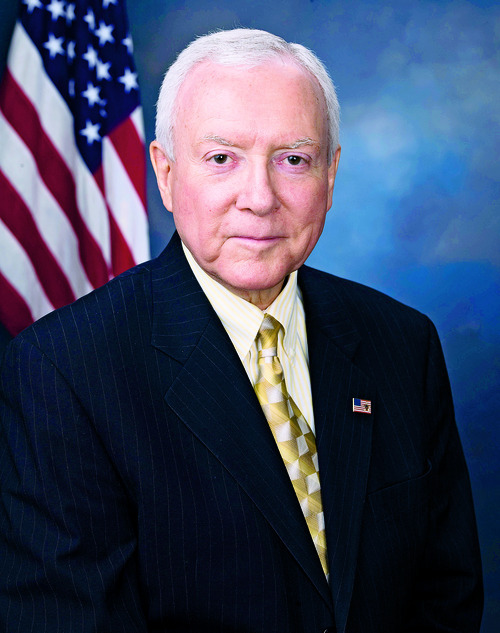This is an archived article that was published on sltrib.com in 2011, and information in the article may be outdated. It is provided only for personal research purposes and may not be reprinted.
The campaign of Sen. Orrin Hatch once again flexed its muscles in a bid to intimidate potential challenge from within the Republican Party.
His latest campaign finance report, released Wednesday, shows he collected $1.6 million in the past three months, breaking his own record for the most a Utah candidate has ever raised in a single quarter. He now has about $4 million in available funds as he seeks a seventh term in office in 2012.
But critics point out how little of that money actually came from people or organizations based in the Beehive State. Of his total, only 9 percentor about $144,000 came from Utah.
"He is going to spend millions of dollars from the insider D.C. crowd to try to win his seat again," said Russ Walker, an organizer with the tea party-affiliated FreedomWorks, a D.C.-based group working with Utah activists in a bid to oust Hatch.
The senator's campaign has repeatedly ripped FreedomWorks for being an out-of-state group trying to influence Utah voters. Walker says his group is involved at the request of Utah tea party activists and notes the senator's fundraising shows that the criticism is hypocritical.
"He is essentially throwing rocks from a glass house," Walker said.
Hatch campaign manager Dave Hansen argues that the campaign collected so much money from throughout the nation because many people want to see the senator become the chairman of the powerful Senate Finance Committee, which would happen if Republicans win control of the Senate next year.
"There are a lot of people both inside and outside the state of Utah who want to see Orrin Hatch re-elected," said Hansen, who predicted the $144,000 the campaign raised from Utahns since July would top the in-state total of any other Utah candidate for federal office.
Hatch received 114 donations from Utahns, including a number of prominent donors such as members of the Sorenson family and Greg Miller, the CEO of the Utah Jazz. But 91 percent of his money came from elsewhere, much of it associated with Wall Street firms, the energy, health-care and technology sectors and from executives of dietary-supplement companies.
Many of the donors would have an interest in the tax and health-care policies debated in the Finance Committee, where Hatch is now the ranking Republican.
The senator's campaign also spent $1 million in the past three months, a high amount this early in the 2012 race. The money employed 32 campaign workers, not counting fundraising consultants based outside of Utah. Many of those employees have been hired to recruit delegates to next year's state Republican Convention.
If Hatch can snag the support of 60 percent of the delegates, he would be the Republican nominee. If he can't, at best he would be forced into a June primary.
Former Sen. Bob Bennett faced similar tea party angst in 2010 and failed to make it out of convention. Both Tim Bridgewater and eventual winner Mike Lee had more support from the delegates.
So far, Hatch has no announced challengers. Rep. Jason Chaffetz, R-Utah, flirted with a run before announcing he would instead seek re-election in the House. The two most likely opponents are state Sen. Dan Liljenquist, R-Bountiful, and state Rep. Chris Herrod, R-Provo.
Liljenquist said he will make a decision later this year, but he added that Hatch's prodigious fundraising and spending would not scare him away. Liljenquist said he would expect Hatch, a "longtime fixture" in Washington, to "raise a lot of money."
Herrod said he is waiting for the state's redistricting process to conclude before deciding if he wants to challenge Hatch. He said the race won't be decided by money.
"Nobody is gong to raise more money than Senator Hatch," he said. "It is going to come down to a simple message: Do the people of Utah think 36 years is enough or not? Is it time to give someone else a chance?"
Twitter: @mattcanham



